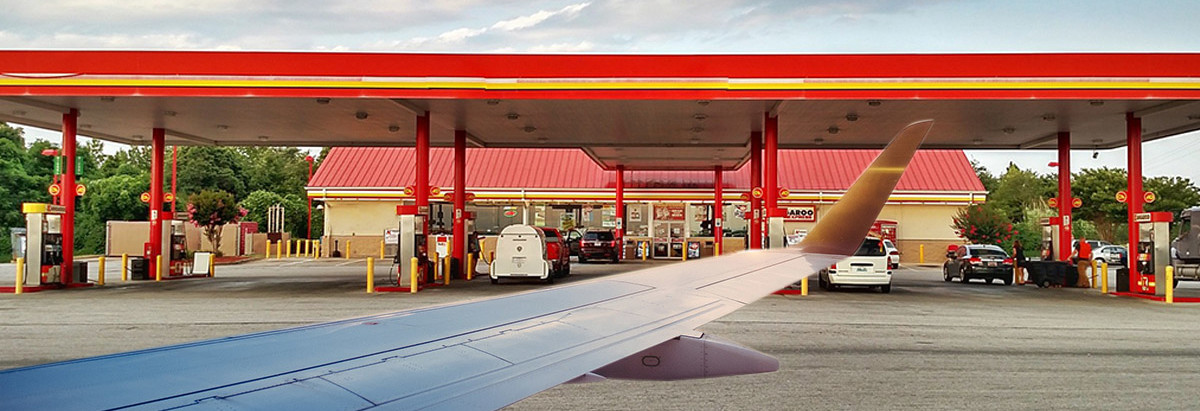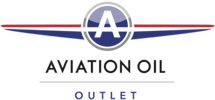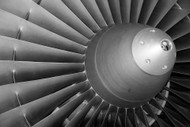Can Automotive Engine Oil Be Used in Aircraft Piston Engines?
By on Jul 25th 2016
Our most pleasurable hobbies are often some of the most expensive--this is especially true for those who are fortunate enough to own their own aircraft. Between hangar fees, fuel, and general maintenance, the costs can reach into the tens of thousands of dollars at years' end--and many look to find ways to save money. This leads to one of the most common questions we hear at Aviation Oil Outlet: Can you substitute automotive engine oil for aviation oil?
The short answer is no.
The differences between automotive and aircraft engines
Automotive engines are water cooled, while most aircraft engines are air cooled to keep the overall aircraft weight down. An air-cooled engine depends on the oil to carry heat away from the cylinders, to the cylinder head, and/or out to an oil cooler to help manage the heat. There can be a 300-degree temperature difference from the oil-cooled cylinder head to the cylinder base in an aircraft engine. This is why aircraft engines have to have large clearances: they allow the metal within the cylinder to become distorted. The larger clearances will, by design, allow oil to pass through the cylinder and be burned.
Water-cooled engines, on the other hand, carry away the heat using a coolant system. This allows for much better temperature regulation and tighter tolerances within the engine. Tighter tolerances mean the engine oil is less likely to burn. The oil used in this type of engine does aid in cooling the engine by carrying away heat, but its primary function is to lubricate.

Air-cooled aircraft engines are also prone to what is called "shock cooling," which happens when an aircraft is descending from cruising altitude on approach to land. The aircraft is throttled back, producing less heat from the engine, but gaining airspeed, causing the engine to cool down very quickly. Rapid reduction in temperature can cause cylinder heads to crack, but by using the above-mentioned oil cooled cylinder heads, this problem has been reduced dramatically. The oil still passing through the cylinder head remains warm, slowing the rate of temperature decrease within the head.
So now that we know what the oil's primary roles are in these two engine types we can now discuss the difference in the oil itself.
Automotive vs. Aircraft Oil
Aircraft engines were designed before ashless dispersants were being added to the oil, and little has changed since. Ashless dispersants help prevent the formation of metallic ash and disperse contaminants so they are suspended in the oil, preventing them from clumping together and forming sludge. These contaminants are then passed through the oil filter and removed from the oil. The benefits of using ashless dispersants were recognized first in automotive engine oils and were quickly adopted for aviation use.
The main difference in aircraft engine oil and automotive engine oil is the additives. The great divide between automotive and aviation oil occurred with the addition of zinc anti-wear and detergents containing metal: these metal containing additives did not bode well in the high-heat environment of an air-cooled piston engine. As mentioned above, these type of engines burn a large amount of oil, and any detergents containing metals and anti-wear compounds like zinc can form metallic ash deposits in the combustion chamber. This can cause pre- ignition within the chamber and actually burn holes in the tops of pistons...the results would be catastrophic to the engine. This is not something you want to happen while cruising along at an altitude of 15,000 feet. This is the main reason why aviation oils as we know them today remain ashless.
While certain additives have been found to be extremely beneficial in automotive engine oils, such as zinc for antiwear, they should not be used in aviation oil. There are specific non-ash-containing additives designed specifically for use in aviation oil; while the purpose of the additive is the same, the chemical makeup is entirely different.
Unfortunately, aviation lubricant additives can be up to 10 times higher in cost than traditional metal-containing automotive additives, which is why the price of aviation oil is, for the most part, more expensive than passenger car motor oil.
Although the difference in price might tempt you to save some money maintaining your aircraft, any potential savings do not outweigh the potentially catastrophic costs. If you're looking to save some money, do yourself a favor and avoid cutting corners: rent out your aircraft when you are not enjoying it or get rid of the hangar and tie it down on the ramp. Either option is a much cheaper alternative than cutting corners on correct maintenance.







